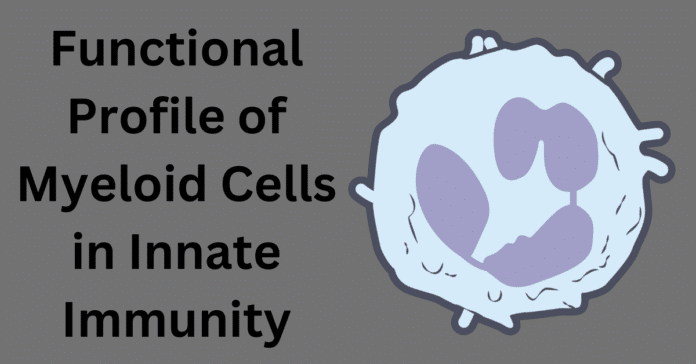The innate immune system is our body’s first line of defense against infections, and myeloid cells play a critical role in orchestrating these initial immune responses. Myeloid cells encompass a variety of effector types, including dendritic cells, macrophages, mast cells, basophils, and neutrophils. Each of these cells is integral to recognizing and responding to pathogens, ultimately shaping the body’s adaptive immune responses. In cancer biology, understanding the functional profile of these myeloid cells can provide insights into how they contribute to tumor progression and how they can be targeted for therapeutic interventions.
Diverse Effector Types in Myeloid Cells
Myeloid cells are a diverse group originating from the myeloid lineage. They share overlapping expression of various membrane receptors, including Toll-like receptors (TLRs), cytokine and chemokine receptors, major histocompatibility complex (MHC) proteins, Fc receptors (FcRs), adhesion molecules, co-stimulatory receptors, and complement protein receptors. This common receptor repertoire is the foundation for specific and coordinated immune responses.
Key Receptor Functions
1. Recognition of Pathogens and Danger Signals through TLRs
Toll-like receptors (TLRs) are essential for recognizing pathogens and danger signals. These receptors detect microbial components and initiate immune responses, leading to the activation of myeloid cells. In cancer, TLRs can recognize tumor-associated antigens, helping to alert the immune system to the presence of cancer cells.
2. Responsiveness to Cytokines and Chemokines
Cytokine and chemokine receptors on myeloid cells allow these cells to respond to signaling molecules that guide their migration and activation. This responsiveness is crucial for the recruitment of myeloid cells to infection sites or tumor microenvironments, where they can exert their effector functions.
3. Antigen Presentation via MHC Proteins
Myeloid cells, particularly dendritic cells and macrophages, present antigens via major histocompatibility complex (MHC) proteins. This process is vital for initiating adaptive immune responses, as it allows T cells to recognize and respond to specific antigens, including those associated with cancer cells.
4. Engagement of Fc Receptors
Fc receptors (FcRs) on myeloid cells mediate antibody-dependent cellular cytotoxicity (ADCC) and phagocytosis. These receptors bind to antibodies that have opsonized pathogens or tumor cells, leading to their destruction. This mechanism is crucial for the clearance of infected cells and tumor cells marked by antibodies.
5. Cell-Cell Interactions Facilitated by Adhesion Molecules
Adhesion molecules on myeloid cells facilitate interactions between immune cells, aiding in their recruitment and communication. These interactions are important for the formation of immune cell clusters at sites of infection or within tumor microenvironments, enhancing the immune response.
6. Activation of Immune Responses through Co-Stimulatory Receptors
Co-stimulatory receptors on myeloid cells are involved in activating immune responses. These receptors provide necessary secondary signals that complement antigen recognition, ensuring a robust immune response. In the context of cancer, these signals can enhance the activation of T cells against tumor cells.
7. Participation in the Complement System
Myeloid cells participate in the complement system, which aids in pathogen clearance and inflammation modulation. Complement proteins can opsonize pathogens or cancer cells, marking them for destruction by myeloid cells. This system also helps in recruiting additional immune cells to sites of infection or tumors.
The Role of Myeloid Cells in Innate and Adaptive Immunity
The functional profile of myeloid cells underscores their importance in orchestrating innate immune responses and shaping subsequent adaptive immunity. These cells act as the bridge between innate and adaptive immunity, ensuring a coordinated and effective immune response. In cancer biology, myeloid cells can have dual roles, contributing to both tumor suppression and tumor progression. Understanding their functions can inform the development of therapeutic strategies that enhance their anti-tumor activities while mitigating their pro-tumor effects.
Conclusion
Myeloid cells are indispensable components of the innate immune system, playing diverse roles in pathogen recognition, immune cell recruitment, and activation of adaptive immunity. In the context of cancer, harnessing the effector functions of these cells can provide new avenues for immunotherapy. By targeting the specific receptors and pathways involved in their activation, researchers and clinicians can develop strategies to enhance the immune system’s ability to fight cancer.
For more detailed insights and the latest research in cancer biology, visit our blog at Cancer Biology Research. Stay updated with cutting-edge discoveries and learn how the intricate functions of immune cells can be leveraged in the battle against cancer.


